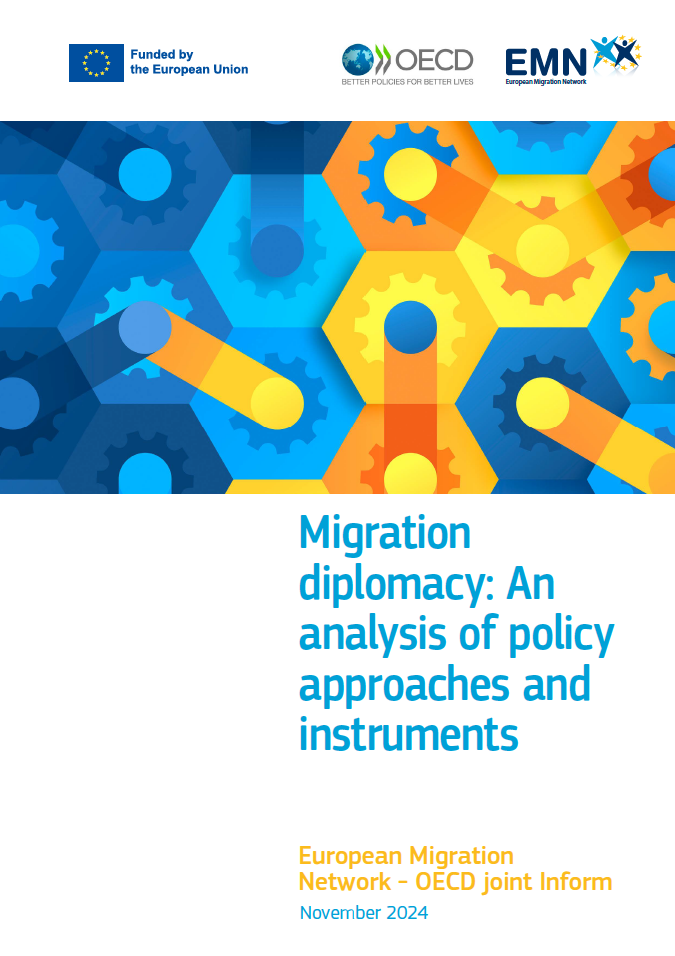This EMN-OECD inform explores the theme of migration diplomacy, investigating the use of diplomatic tools, processes, and procedures vis-à-vis third countries to manage international migration. It provides an analysis of policy approaches and instruments in migration diplomacy efforts applied by EMN Member and Observer Countries.
Seventeen EMN Member and Observer Countries, including Ireland, utilise migration diplomacy at national level as part of their wider international migration affairs.
Most EMN Member and Observer Countries apply cross-sectoral approaches, focusing on issue linkages and priorities within the area of migration and/or outside the area of migration (e.g. trade, development agreements/development aid, tariffs/loans, administrative arrangements).
A variety of instruments are commonly used in migration diplomacy, such as bilateral agreements, memoranda of understanding (MoUs), declarations of intent, and the appointment of special envoys or diplomatic representatives.
Bilateral agreements are one of the most commonly adopted migration diplomacy instruments and can include a wide range of agreements from a ‘single issue’ (such as readmission agreements, visa facilitation agreements, working holiday visa agreements, etc.) to more comprehensive ‘cross-sectoral’ agreements (such as migration partnership agreements, mobility agreements, etc).
According to the inform, successful migration diplomacy hinges on several key factors, including political stability in partner countries, solid legal frameworks, and institutional coordination.
The EMN inform also categorises migration diplomacy approaches into “coercive migration diplomacy,” which relies on penalties or negative conditionality, and “cooperative migration diplomacy,” which is based on rewards or positive conditionality. While the policy outcomes of each approach vary according to the political and social contexts of the nations involved, both have proven influential in shaping migration diplomacy policies in sending, receiving, and transit countries.
Key success factors identified for migration diplomacy negotiations include political stability, coordination, leverage, legal frameworks, resource allocation, and sustainability.
While each country faces unique challenges, common themes that emerge include the need for effective coordination, adaptability, robust implementation mechanisms, and clear metrics for success.


